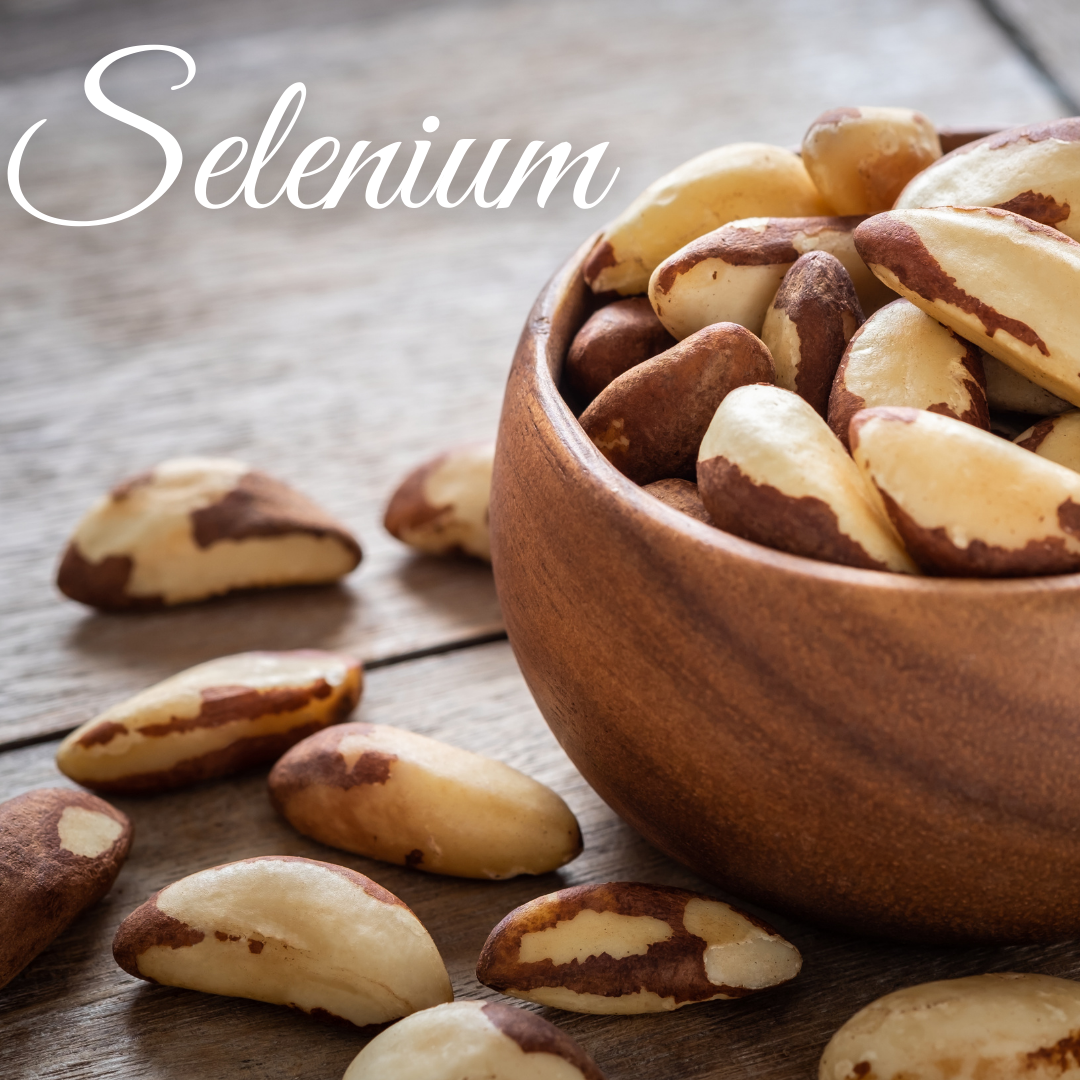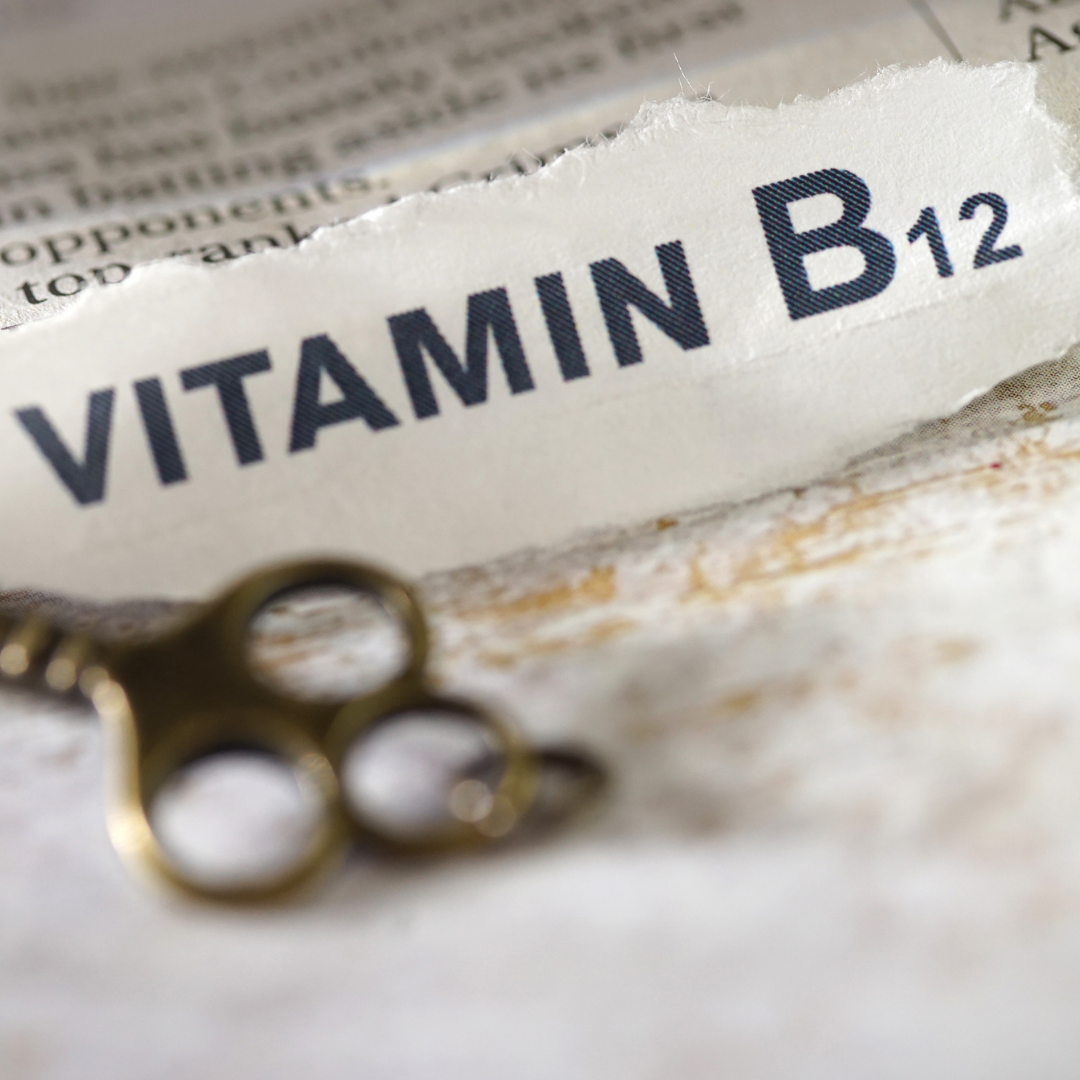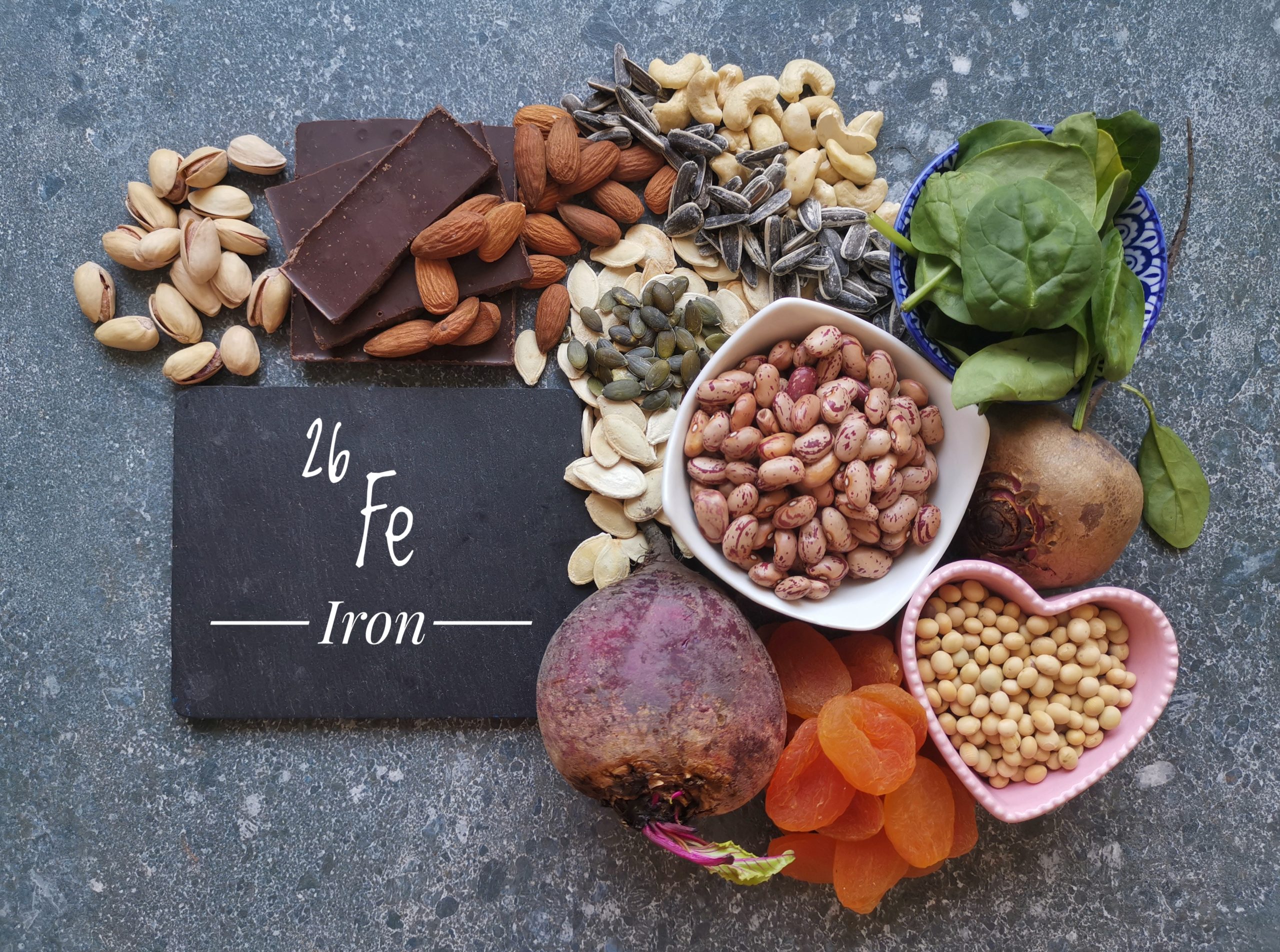Direct exposure to sunlight is the primary way to obtain vitamin D. During the summer months, it’s easier to get our recommended twenty minutes of sun exposure daily to the face and lower arms and hands but because in order to get the vitamin D that exposure needs to be…
-
-
Selenium
Selenium is crucial for healthy thyroid hormone production and also plays an important role in DNA synthesis, reproduction, immunity, reducing inflammation and cardiovascular health. Selenium deficiency can result in cognitive decline, depressed mood, anxiety, muscle weakness, reproductive issues, inflammation, cardiomyopathy in children and young women, impaired growth, impaired immunity and…
-
Vitamin B12
vitamin B12 is required for the development, myelination, and function of the central nervous system; healthy red blood cell formation; and DNA synthesis, it is essential for bone formation and among other functions. Long-term B12 deficiencies are extremely serious, affect the brain and nervous system function, and can be irreversible.…
-
Plant-Based Sources of Iron
Iron is a mineral that the body needs for growth and development. Your body uses iron to make hemoglobin, a protein in red blood cells that carries oxygen from the lungs to all parts of the body, and myoglobin, a protein that provides oxygen to muscles. There are two kinds of…
-
Whole Grains
Whole grains are grains that have not been stripped of valuable nutrients in the refining process (refined grains). All whole-grain kernels contain three parts: the bran, germ, and endosperm. The bran is the fiber-rich outer layer that supplies B vitamins, iron, copper, zinc, magnesium, antioxidants, and disease-preventing phytochemicals. The germ is the core of the seed…




